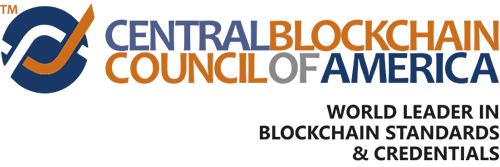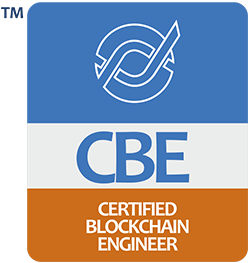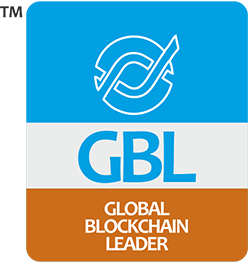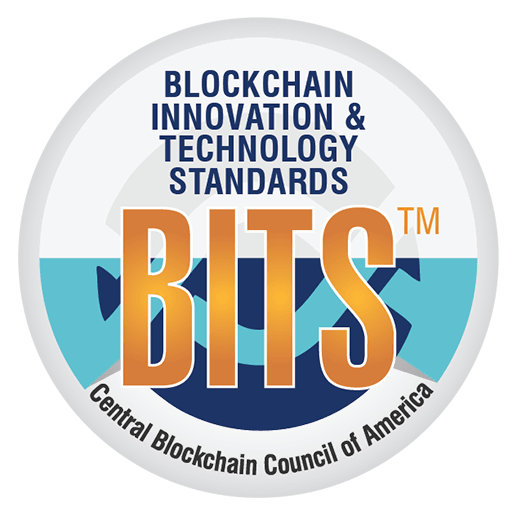Feb 04, 2022
Primarily known as the technology underlying digital currencies, Blockchain entered the public consciousness nearly a decade ago with the advent of bitcoin. However, bitcoin was just a small part of the bigger picture.
Industry leaders & innovators are quickly adapting to Blockchain; from finance to medicine, many sectors are searching for ways to incorporate blockchain technology into their existing infrastructures.
Blockchain technology is decentralized and trustless, opening new opportunities for businesses. It also benefits them through increased transparency, greater security, and better traceability.
How Blockchain Can Power Up Your Business
Blockchain solutions go beyond the exchange of cryptocurrency. Its distributed and decentralized nature makes it possible to provide numerous benefits for businesses across industries.
Enhanced Cybersecurity
Blockchain is more secure than any other record-keeping system because every transaction is encrypted and linked to the previous transaction. A network of computers come together to form a block which is then added to a ledger to form a "chain." Blockchain is formed by a complex string of mathematical numbers that cannot be changed once created. Blockchain's immutable, incorruptible nature makes it immune to hacks and falsified information. In addition, Blockchain's decentralized nature gives it the unique quality of being "trustless", - which means that no parties need to trust each other to transact safely.
Less cost
A rapid reduction in overhead costs is one of the prime reasons small & medium enterprises are embracing blockchains. Payments can be made through peer-to-peer networks and do not require central verification. As a result, a small business can accept Bitcoin payments and pay less merchant processing fees.
Blockchain can also lower overhead costs by automating key services such as legal costs to draft contracts and other expenses such as accounting. In addition, SMBs can reduce their payroll and invoicing costs by using smart contracts.
Better traceability
The blockchain ledger records every exchange of goods on a Blockchain. It allows you to trace the origins of the goods with the help of an audit trail. This will improve security, prevent fraud in exchange-related business, and verify the authenticity of traded assets. In addition, it can be used in medicine to trace the supply chain and prove ownership in the art industry.
Greater transparency
The greatest feature of Blockchain is the fact that it has a transaction ledger for public addresses. This adds an extraordinary layer of accountability to financial systems and businesses. In addition, it holds each business sector accountable for its growth, community, and customer satisfaction.
Improved Advertising and Marketing
Blockchain technology is innovating advertising & marketing in a great way. It allows for better tracking and reporting of digital campaigns. Blockchain allows users to choose the advertising they wish to see and are rewarded with tokens. For instance, Brave (a blockchain-based browser) automatically blocks ads and web trackers, and Brave Rewards can be opted for by users who choose the ads they wish to see.
Streamlined Financial Operations
Blockchain can eliminate delays in asset transfer and payment cycles, helping to reduce costs, increase accuracy and improve compliance efficiency. Blockchain transparency can also help streamline trade finance and supply chain financing in multi-party networks.
Better Healthcare
Blockchain-based electronic health records could give healthcare providers a more holistic view of patient data and improve health outcomes. It would also rebalance information paradigms and place the 'personal' in personal health. In addition, blockchain in healthcare can ensure transparency and honesty in developing pharmaceutical drugs with a long-winded process that requires stringent checks for data integrity or hygiene.
Increased Efficiency
Blockchain facilitates faster transactions than traditional financial services by allowing cross-border P2P transfers using a digital currency. Furthermore, Blockchain eliminates middlemen from many transactions like payments and real estate due to its decentralized nature. In addition, this helps make property management more efficient, a unified system of ownership records and smart contracts that automate the management of tenant-landlord agreements.
Top Industries That Are Using Blockchain Technology
With innovative inclusions of emerging ledger technology in their daily business operations, industries are leading the blockchain revolution proving that blockchain has a greater value than just being used for cryptocurrencies and can be used in almost any industry.
Here are the different industries utilizing Blockchain in 2022:
Supply Chain Management
Blockchain can be used to record the price, date, location, certification, and other relevant information for better managing the supply chain. In addition, Blockchain enables transparent, accurate, and authentic transactions that are auditable and pre-approved with clear fees. It is also used to eliminate intermediaries and lower costs.
Finance And Banking
Blockchain simplifies banking and lending services by reducing counterparty risk, settlement, and issuance times. In addition, it allows for authenticated documentation and KYC/AML information, reducing operational risks and allowing real-time verification and approval of financial documents.
Infrastructure
Blockchain can connect important infrastructures in a city to provide information that allows management of organic waste, urban traffic, energy use, and reduces your carbon footprint.
Blockchain technology will allow devices to gain faster and more direct access to the benefits offered by 5G infrastructures by using tokens.
Healthcare
Blockchain solutions for healthcare have advanced from what they were 5 years back; we no longer require deep first-hand expertise with the technology since most blockchain-based solutions are now offered like any other software-as-a-service. For instance, using a blockchain-based system to track items at the manufacturing point and each stage through the supply chain enables customers to have full visibility and transparency of their buying goods.
MediLedger, a leading example of a blockchain protocol that allows companies in the prescription drug supply chain to verify medications' authenticity and expiry dates.
Data Connection
The way businesses manage their data will change due to blockchains. Blockchains keep the data transparent, enabling chain participants to see potential costs, transactions, and inventory between customers, suppliers, and competitors. It will also allow for a fair and competitive market free from regulatory and middleman costs.
Human Resources
It is difficult for businesses to find and retain talent even with the internet as they must also manually verify the references and credentials of candidates. Blockchain eliminates inefficiencies when it comes to hiring and paying employees. HR can verify credentials, candidates can securely update their information. It also allows for quicker transactions more safely meaning timely paychecks. Both parties can benefit from it.
Data Collaboration And Control
Collaboration and data control do not necessarily go hand in hand, and there is always some disparity. Blockchain bridges the two. Enterprises need to work together to succeed, and Blockchain can be used as a system for the record, similar to a collaborative SQL database. This allows companies to do business without trusting third parties or partners to not corrupt mission-critical data.
Public sector
Industries across varied sectors seek to reap the many benefits of blockchain technology and work hard to create use cases. The public sector is not an exception. The reality of blockchain transformation has already begun to modernize existing systems and processes.
It is no surprise that the Department of Homeland Security has begun to develop blockchain-based prototypes to help protect the United States' infrastructure and citizens, given the importance of cybersecurity in the intelligence community. In addition, the Centers for Disease Control and Prevention (CDC) have been producing several POCs primarily focused on public safety surveillance. This is to greatly improve real-time data access and accelerate the response time of public health workers during times of crisis.
Retail & CPG
Blockchain can be a positive asset to the retail and CPG industries by ensuring food traceability and facilitating micropayments. For instance, A potato farmer can share his data with the potato chip manufacturer and even the retailer, creating a trusted environment.
Agriculture & Mining
Blockchains are solving the problem of tracking products throughout the complex supply chain.
Blockchain records every step of a product's value chain, from creation to end. For example, for developing data-driven insurance solutions and facilities that make farming more efficient and less vulnerable, reliable data from the farming process is extremely valuable.
Many smart farming models have been proposed and implemented using the combined application of IoT and blockchain technology.
Farm organizations can also use Blockchain to improve their farming practices. For example, In Taiwan, the farmland irrigation associations use Blockchain to store data and better communicate with the public.
Cloud computing & storage
Due to its unique features, the blockchain system can provide significant benefits in terms of functionality and performance enhancement. For example, Blockchain, a distributed system, can help establish an architecture that allows multiple computers to work simultaneously on one task, such as storage or processing data. This can decrease the overall operation time and increase the speed of uploading and processing data.
A dependency on a central server to manage data and make decisions is a problem in IoT and cloud computing. A failure of the central server can disrupt the entire system and cause loss of data stored on the server. Hackers can also attack the central server. Blockchain can solve this problem because multiple copies of the same data are stored on multiple computers nodes. This eliminates the possibility that one server could fail and prevents the entire system from being ineffective. In addition, multiple copies of the same data are stored on multiple computers, so data loss is not a problem.
WRAPPING UP
Blockchain is making waves, thanks to blockchain developers, varied practical applications have been implemented and explored.
As we enter the third decade with blockchain technology, it is no longer a matter of whether legacy companies will adopt the technology. Instead, it's more about when. In addition, we see an increase in NFTs and tokenization of assets. As a result, Blockchain will experience significant growth in the coming decades.








